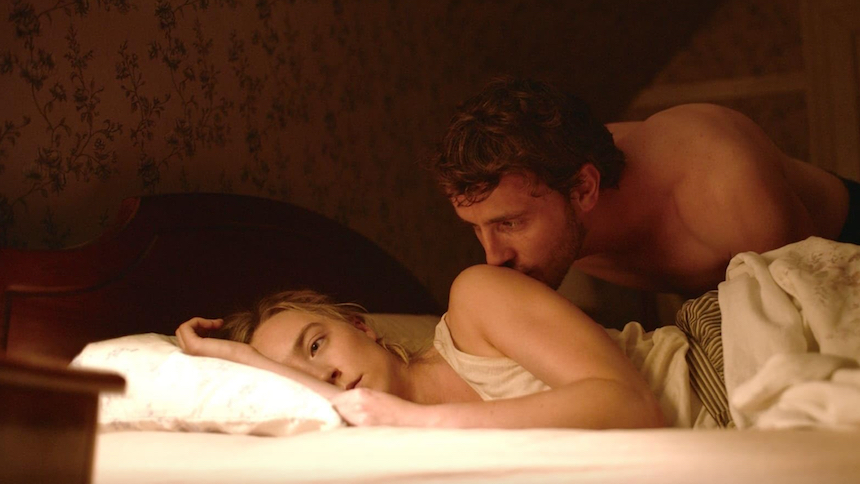FOE Review: Inscrutable Characters Don't Make For Good Drama
Paul Mescal and Saoirse Ronan star. Garth Davis directed.

Garth Davis’s Foe is both less than the sum of its parts and a film that you can tell worked better when it was a novel.
The film, adapted from the novel of the same name by Iain Reid, offers some compelling, if not especially original, ideas. In 2065, Earth is dying, humans are preparing to migrate to space, some humans are being conscripted to migrate for study, and the conscripting government (or is it a corporation?) offers biomechanical AI replacements for humans leaving behind their loved ones on our planet.
The story begins when Terrance (Aaron Pierre) arrives at the isolated rural Midwestern home of Junior (Paul Mescal) and Henrietta (Saoirse Ronan) and informs the couple that Junior will be going to space, whether he wants to or not. He won’t have to leave anytime soon, this is just a “warning,” sorry that’s the wrong word, Terrance assures them this is a good thing and he’s excited to share it with them.
Just one year later, Terrance returns, with news that Junior’s departure is imminent, and Henrietta will be given a replacement version of her husband, a version of her husband that Terrance needs to work with Junior to accurately (re)create. It’s a fairly standard “stranger at the door” set up within a well-built sci-fi world, but Foe never coheres into anything more than an all-too-rarely intellectually interesting slog.
Foe's primary issue is that each member of its central trio is impossible to understand. It’s a character-driven drama, or even thriller, centered on three characters whose every action and decision feels at odds with what they’ve done before.
It’s impossible to get a sense of the shifting dynamic between Junior and Henrietta with Terrance’s arrival because we were never properly introduced to the original dynamic between the couple. There are multiple baffling moments that abruptly introduce suspicions as if they’ve been building up over the course of the film and even more perplexing explosive moments that fail because we have no understanding of what has led to the outbursts.
You can feel Foe reaching for awards in those outbursts. Moments that are such capital A “acting” that it’s hard not to feel for Mescal and Ronan as they give their all; whether that’s good or bad is up for debate. Yet it’s not only in the acting that the film feels like weak awards bait.
The cinematography, by the undeniably talented Mátyás Erdély, is striking in some exterior wide shots that emphasize the film's neo-Western aspirations. By the fifth image of laundry blowing in the wind, though, shot at a specific angle that allows sunlight to drip through every so often, it’s difficult not to become immune to its beauty, and feel as if the film is simply attempting to mimic recent award winners like Nomadland.
At worst, Foe feels like a cynical attempt to lift a style, filled with close-ups of bodies and slow camera moves, and apply it to what’s hot right now by centering humans’ relationship to AI. At best, it’s a failed adaptation of a successful novel, a medium that better serves esoteric monologues and blatant symbolism, that throws the book’s ideas at the screen without ensuring they’re properly couched in an emotionally compelling narrative.
The film is now playing in select theaters via Amazon MGM Studios and will shortly begin streaming on Prime Video.







